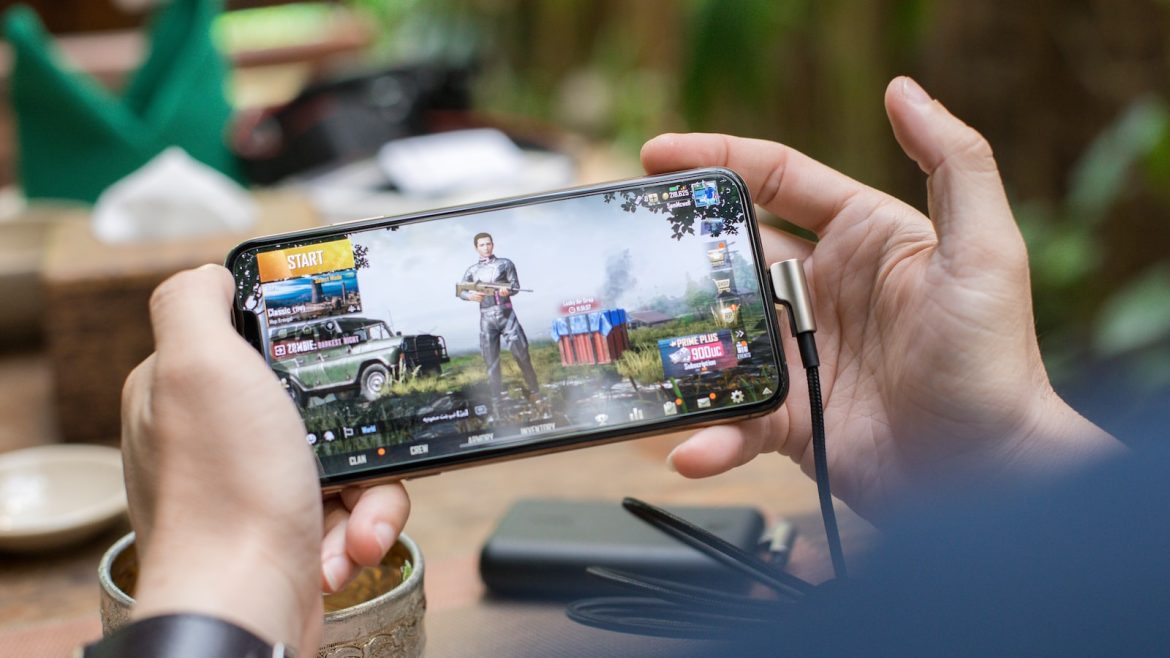Lost in virtual worlds, hearts pounding, adrenaline rushing. Gaming addiction has taken the world by storm, captivating the minds of individuals young and old. Once thought of as a simple pastime, video games have evolved into a vortex of obsession, trapping players within their mesmerizing spell. As technology advances and the gaming industry flourishes, the issue of video game addiction becomes increasingly prevalent. It is time to delve into the depths of this digital phenomenon, unravel its complexities, and discover the keys to successful management. In this article, we aim to shed light on the issue of gaming addiction, recognizing its signs and implications, and empowering those affected to take positive steps towards finding a balanced and fulfilling life. So, let us embark on this journey together, as we navigate the treacherous waters of gaming addiction and embark on the path to recovery.
Recognizing the Signs of Video Game Addiction: Understanding the Impact and Identifying Red Flags
Recognizing the Signs of Video Game Addiction:
As gaming continues to soar in popularity, it becomes crucial to understand the impact of video game addiction and identify the red flags. Whether you’re a concerned parent, a friend, or even someone struggling with their own gaming habits, recognizing these signs can help address the issue before it spirals out of control.
1. Neglecting responsibilities: One of the telltale signs of video game addiction is when a person starts neglecting their responsibilities in favor of gaming. This includes missing school or work, neglecting personal hygiene, and abandoning household chores.
2. Withdrawal from social activities: When gaming becomes the sole focus of someone’s life, they may begin to withdraw from social activities they once enjoyed. Oftentimes, excessive gaming leads to isolation from friends and family, as the person becomes more engrossed in their virtual world.

Taking Control: Effective Strategies for Managing Video Game Addiction
Video game addiction is a growing concern in today’s digital age. It can negatively impact various aspects of an individual’s life, including relationships, work, and overall well-being. Recognizing the need for change is the first step towards taking control of this addiction. Here are some effective strategies to manage video game addiction:
- Set strict boundaries: Establish specific time limits and stick to them. Determine how much time you should spend playing games each day and set clear boundaries to prevent excessive gaming.
- Diversify activities: Engage in a range of activities that stimulate your mind and body. Find new hobbies, exercise regularly, read books, or spend quality time with friends and family. By actively diversifying activities, you’ll have less time and inclination to indulge excessively in video games.
- Seek a support system: Connect with like-minded individuals who are also striving to overcome gaming addiction. Join support groups, online forums, or reach out to therapists who specialize in video game addiction. Sharing experiences and receiving support from others can be extremely helpful in managing addiction.
Remember, managing video game addiction requires commitment and self-discipline. Implementing these strategies can provide a foundation for taking control of your gaming habits and achieving a healthier, more balanced life.
Building Healthy Gaming Habits: Practical Tips for Maintaining a Balanced Lifestyle
Gaming is a fantastic way to unwind and escape from the pressures of everyday life. However, it’s important to strike a balance between your virtual adventures and real-world responsibilities. By adopting these simple yet effective tips, you can build healthy gaming habits that enhance your overall well-being.
1. Set Time Limits:
Allocate specific time slots for gaming and stick to them. This prevents your hobby from taking over your entire day and ensures you have ample time for other activities.
- Plan your gaming sessions in advance and set an alarm to remind you when it’s time to step away from the screen.
- Consider using apps or software to track your gaming time and receive notifications once your limit is reached.
- Divide your gaming time into smaller chunks throughout the day to avoid prolonged periods of sedentary behavior.
2. Engage in Physical Activity:
A balanced lifestyle involves more than just gaming. Incorporating physical activities into your routine allows you to stay healthy and energized.
- Schedule regular exercise sessions, such as jogging, yoga, or dancing, to counterbalance the sedentary nature of gaming.
- Consider incorporating active gaming options, like virtual reality games or motion-controlled consoles, to get moving while enjoying your favorite titles.
- Explore outdoor activities with friends or join local gaming communities that organize physical meet-ups, fostering both gaming and social connections.
Remember, developing healthy gaming habits is about finding a sustainable balance between leisure and responsibility. By implementing these tips, you’ll be able to enjoy your gaming sessions guilt-free and live a well-rounded, balanced lifestyle.
Seeking Help for Video Game Addiction: Supportive Resources and Professional Assistance
Supportive Resources
Overcoming video game addiction requires a strong support system, and there are numerous resources available to aid you on your journey. Here are some valuable sources of support that can make a significant difference:
- Online Communities: Connect with like-minded individuals who have faced or are currently facing video game addiction through online forums and support groups. Sharing experiences and advice can help you feel understood and provide insights on effective strategies for recovery.
- Supportive Apps: Conveniently access tools and resources on your smartphone with addiction recovery apps specifically designed to address video game addiction. These apps can include features such as monitoring screen time, providing daily reminders, and offering motivating content to help you stay on track.
- Counseling Services: Seek professional help from therapists or counselors who specialize in video game addiction. They can provide personalized guidance, offer coping strategies, and help you navigate the underlying causes that may contribute to your addiction.
Professional Assistance
If you feel your addiction is becoming overwhelming and difficult to manage independently, it may be time to consider seeking professional assistance. Here are a few examples of experts who can provide specialized help:
- Psychiatrists: Consult with psychiatrists who can assess your situation, offer medication options if necessary, and provide additional support for any co-occurring mental health disorders that may contribute to your addiction.
- Video Game Addiction Specialists: Look for professionals who specifically focus on treating video game addiction as they have in-depth knowledge of the subject and are better equipped to provide targeted interventions and therapy techniques.
- Support Hotlines: Utilize dedicated helplines and crisis chat services to speak with trained professionals who can offer immediate guidance, reassurance, and resources to help you through moments of crisis or when you feel overwhelmed.
Remember, you are not alone in your struggle. These resources and professionals are here to support you on your path to recovery and create a healthy balance between enjoying video games and living a fulfilling life.
In Retrospect
As we conclude this journey into the intriguing realm of gaming addiction and its management, we hope to have shed light on a subject that often hides in the shadows of popular culture. By unraveling the complexities of video game addiction and understanding its impact on individuals, we have empowered ourselves to take positive steps towards a brighter future.
Gaming addiction, like any other addiction, is a battle fought within the depths of one’s mind. It’s an alluring world that offers an escape from reality, drawing us into an alternate universe where we can be anyone and do anything. But as we immerse ourselves deeper, the line between virtual and real life becomes blurred, ultimately leading to unforeseen consequences.
Recognizing video game addiction is the first key to unlocking the path towards recovery. It requires a genuine introspection, a courageous look at oneself in the mirror, peering beyond the avatars we create and the achievements we unlock. Acknowledging the power games hold over us is essential, setting the stage for a transformative journey towards healing.
The road to managing gaming addiction is not an easy one, but it is fraught with opportunities for growth and self-discovery. It beckons us to explore alternative passions and interests, to rediscover genuine connections with loved ones, and to find joy in the unscripted moments of life. By focusing on meaningful experiences, we can gradually detach ourselves from the allure of virtual worlds and embrace the richness that reality has to offer.
Taking positive steps towards managing gaming addiction necessitates a multi-faceted approach. It involves building a support network, seeking professional guidance, and adopting healthy coping mechanisms. We must strive to strike a balance between our love for games and our responsibilities in the real world, recognizing that true fulfillment lies beyond the pixels and pixels alone.
As we venture forth, armed with a newfound understanding of gaming addiction and the determination to manage it, let us tread with compassion and empathy. Let us offer a helping hand to those who may be struggling, fostering an environment of understanding and support. For it is only through collective effort that we can create a positive, inclusive gaming community that embraces the beauty and diversity of this form of entertainment.
Remember, gaming addiction is not an insurmountable obstacle but rather a challenge that invites growth and resilience. By recognizing its presence, understanding our own vulnerabilities, and taking purposeful steps towards change, we can transform our lives for the better.
So, let us embark on this journey together, knowing that the power to reclaim our lives lies within us. Let us rise above the virtual constraints and uncover the infinite potential that awaits beyond the screen. For when we conquer gaming addiction, we emerge as warriors of self-discovery, equipped with the tools to navigate the labyrinth of our own minds and embrace the beauty of the real world.
An estimated three million people in the United States are afflicted with video game addiction, according to the World Health Organization. The rise of video gaming and the accessibility of internet-connected devices have made it increasingly difficult for some people to regulate their game time. Mental health professionals have started to recognise that video game addiction is a serious condition that requires appropriate intervention.
When it comes to video game addiction, first and foremost, it is important to recognize the signs of excessive gaming. Some of these can include obsessive behaviour, loss of interest in other activities, a lack of self-control, including a tendency to play for longer than intended, and a lack of interest in school or work. A lack of social interaction is also common in video game addiction cases.
If someone is worried that they or someone they know may be addicted to video games, the best solution is to seek help and advice. Speaking to a mental health professional or visiting a support forum may provide the resources and advice to manage game use. Taking necessary steps to seeking help and managing game time can help individuals get control of their gaming habits and leading successful and healthy lives.
For individuals looking to cut back on gaming, take small manageable steps and include other activities. Replace game time with activities such as reading a book, doing some exercise, or going for a walk. Planning and setting a schedule of realistic goals will help to achieve successful game management. Additionally, turn off notifications and avoid playing when feeling overwhelmed or stressed.
Video games are not inherently bad, it is important to enjoy in moderation. When used wisely, they can be an effective way to wind down after a long day or have some fun with friends. Bullying, violence and addiction to gaming are serious problems, but these conditions should not distort the possibility for balanced game time.
Making conscious choices to monitor game time and look out for other activities can help individuals get control of their gaming habits. It is important to be aware of the signs of gaming addiction and to take steps to manage it. If the problem persists or the situation becomes more serious, seek advice from a certified professional.



